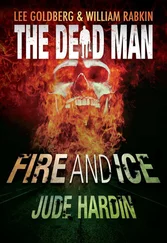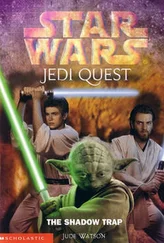In a couple of hours, the blood that was used to produce Rock Wahlman and Darrel Renfro seventy-four years from now would be drawn, the same specimen that was used again twenty-four years later to produce thousands of other clones.
The ones who’d recently turned eighteen.
The ones being trained for Special Forces.
Wahlman took a few seconds to process the significance of all that, and of his contribution in ensuring that it was still going to happen, and then he pushed his way through the door and headed down the stairs.
20
Wahlman ran to the LTD, opened the door and slid into the passenger seat. Diane was breathing heavily and sweating profusely.
“Get this thing off of me,” she said.
Wahlman reached over and punched in the codes, pulled the watch off of Diane’s wrist and slid it onto his own.
“What’s wrong?” he said. “You still had two whole minutes.”
“Are we done now? Because I really don’t think I can—”
“We’re done,” Wahlman said. “I just need you to give me a ride back to your place so I can get my bike.”
“Then what?”
“Then you’ll never see me again.”
Wahlman had no idea what he was going to do now. He was stuck in 1983, and it was a pretty safe bet that Victor would keep sending assassins until he got the outcome he wanted. Running and hiding was no kind of life. Wahlman had been there, done that. But it looked like he was going to be doing it again. Maybe forever this time.
Diane started the car, backed it out of the space and headed toward the exit.
“What’s all over your hands?” she asked. “Is that blood?”
“I don’t want to talk about it,” Wahlman said.
“I don’t want that shit all over my car. I have some wet wipes in the glovebox if you—”
“Wait,” Wahlman said. “Turn your lights off. Drive to the back of the lot. Where it’s dark over there.”
“Why?”
“I need to get in the trunk until we clear the front gate. I almost forgot.”
Wahlman’s memory still wasn’t a hundred percent. He figured it would continue to improve with time. At least he hoped it would.
Diane switched the lights off and steered to the back of the parking lot, into a long and eerie group of shadows thrown by a tall and eerie group of trees on the other side of the fence. It was nice and dark back there, and there weren’t any other cars around.
But there was a motorcycle.
Stahler’s motorcycle.
It had to be.
It was a Honda. Not really, but it looked like one. Mid-seventies, Wahlman guessed. It looked like a Honda because Stahler had adjusted the settings on his watch to make it look like a Honda. The bikes were like the suits. You could control the appearance with the push of a button. It was a nice choice. Not that it was going to do Stahler—or anyone else—any good at this point. Not as a time machine, anyway. Stahler’s fifty-seven minute limit would expire soon, leaving him in the same position that Wahlman was in.
Stuck in 1983.
If he survived the elbow to the nose.
Nobody else could even start the bike, because it had been programmed to scan for Stahler’s DNA. So it was useless now, as far as Wahlman was concerned. Nothing more than a very expensive hunk of scrap metal.
Wahlman opened the glovebox, reached in and grabbed a wet wipe. Started to tear it open, suddenly realized the huge mistake he was about to make.
Because the blood on his hands was Stahler’s blood.
Which contained Stahler’s DNA.
It was a long shot, but Wahlman figured it might be his only chance.
“Want me to open the trunk now?” Diane asked.
“Sit tight for a minute,” Wahlman said.
He climbed out of the car and walked over to Stahler’s motorcycle. Inserted the key and switched the power on. Mounted the seat and wrapped his fingers around the grips and thumbed the start button.
Nothing happened.
He looked down at his hands. The blood had dried in streaks along his fingers and palms. He rubbed his hands together, hoping that the friction would distribute the DNA molecules more evenly.
He tried the start button again.
Still nothing.
He rubbed some more and pushed the button some more. He was about to give up and walk back to the LTD when he glanced over and saw the headlights come on and watched his only other chance of getting off the base squeal away in a cloud of smoke and dust.
Diane had abandoned him. Not that he could blame her. It’s the kind of thing that happens when you threaten to blow someone up.
Wahlman considered trying to leave the base on foot. Then he thought of something. Maybe the electronic ignition was temperamental. Like the one on the bike he’d owned when he was in the Navy.
He tried the kick starter.
Once.
Twice.
Three times.
On the fourth try, the engine roared to life.
Which meant that the onboard computer had recognized him as Stahler. Which meant that he had a chance now. A chance to get home. If Stahler’s time hadn’t expired already. If it had, then spinning into a different timestream on this bike would be just as risky as spinning into a different timestream on his own. He had no way of knowing exactly how much time Stahler had left. Maybe he would make it to 2101 in one piece. Maybe not. It didn’t really matter. He had one chance. One roll of the dice. And he was going to take it. The only alternative was to stay in 1983 and try to dodge bullets for the rest of his life.
He put the bike in gear and sped around to the parking lot exit, steered out onto the road that led to the front gate.
That was when he saw the first helicopter.
21
It was an old joke among sailors. When the Air Force was given a budget to construct a new base, they built the clubs and recreation rooms and chow halls first. Movie theaters, swimming pools. Then they would need more money. For things like runways. Maybe there was some truth to it. Wahlman didn’t really know. But he knew they were spending a fortune right now. They hadn’t launched one helicopter to find him. Or two. They’d put a whole company in the air. It seemed like overkill, but maybe they were in a hurry to get back to their cocktails and ping pong games.
Wahlman couldn’t outrun them. There was no way. They would gun him down before he built up enough speed to do what he needed to do. Before he could make an attempt at spinning back to 2101. He couldn’t outrun them, but maybe he could outmaneuver them. Off-road. Through the woods. But not on this motorcycle, and not in these clothes. He pulled in beside the same stand of trees that had provided cover in the parking lot and adjusted the settings on his watch, switching over to a full leather racing suit and a bike built for motocross. He jammed the shifter into gear and spun back out to the road, zigzagging his way toward the forest as the muzzle flashes strobed against the pavement and the bullets rained down from the sky.
The suit Wahlman had chosen was lined with a material that didn’t exist in 1983, a fabric that could stop projectiles designed to pierce the hull of a tank. It was great for emergencies, like the one Wahlman was facing now, but it was hot and it made you sweat and you couldn’t wear it for more than a few minutes without risking severe dehydration. And of course it wouldn’t stop a bullet from puncturing a tire, even a tire that had been fortified to resist road hazards and knife blades.
Wahlman kept those things in mind as he veered off into the woods.
Which were dark.
Too dark to navigate safely.
The motocross bike didn’t have a headlight, but Wahlman wouldn’t have used it anyway. He wanted to be as invisible as possible. But he also didn’t want to slam into a tree. He didn’t know if the FCYYC helmets were equipped with night vision. He couldn’t remember. He figured they probably were, and was about to stop and try to find the setting on his watch when it suddenly became unnecessary. Some of the helicopters started shining spotlights down into the woods.
Читать дальше












